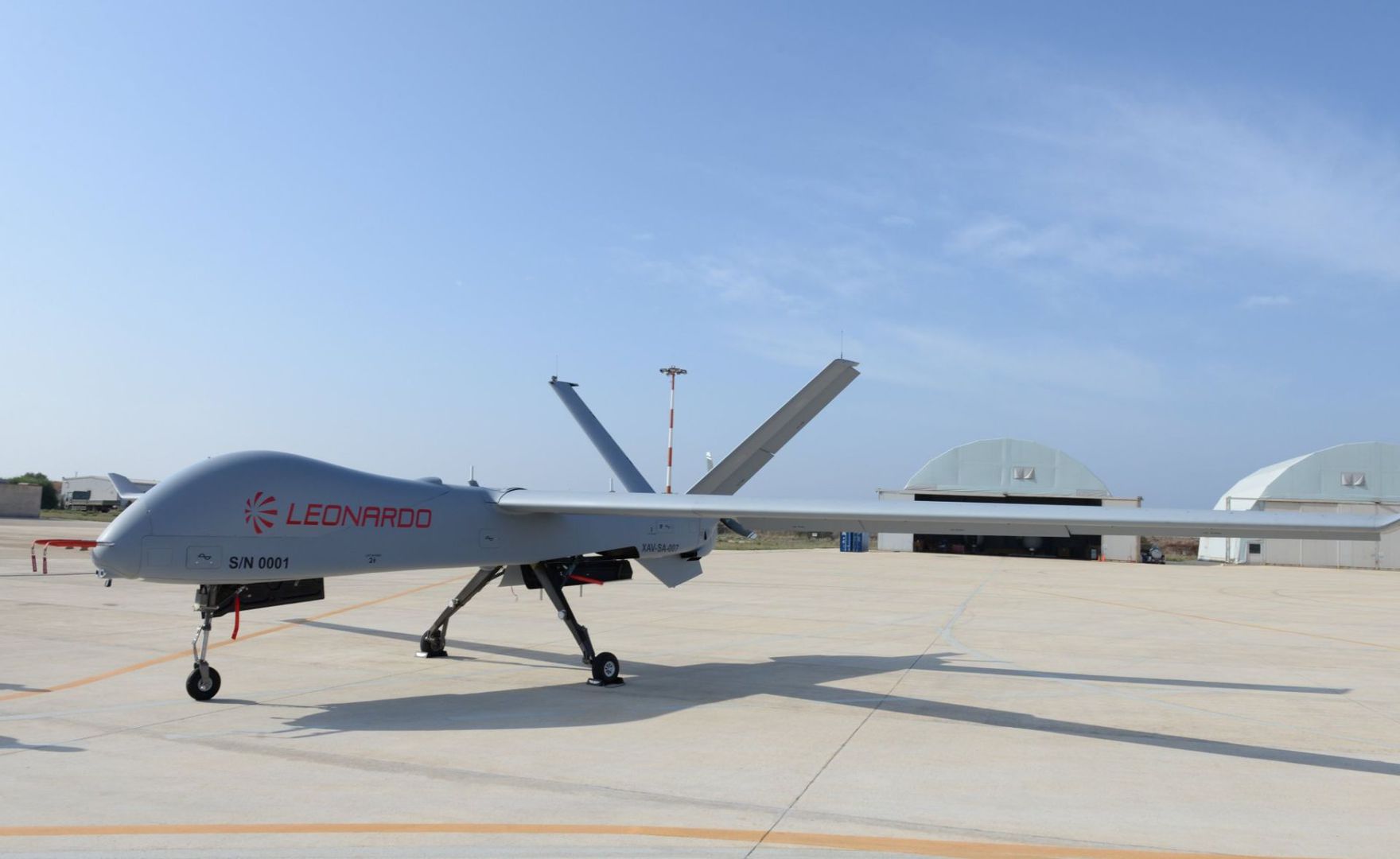Leonardo has announced the maiden flight of its new Falco Xplorer drone aircraft. Falco Xplorer S/N0001 took off from Trapani Air Force base on January 15, cruised over the Gulf of Trapani in a dedicated fly zone, for around 60 minutes and then returned to base, landing safely.
The maiden flight is a significant milestone which has been achieved through technical and engineering support, at the test flight planning stages and with other related activities, by the Italian Air Force Test Flight Centre. The Remotely-Piloted Air System (RPAS), which combines endurance of over 24h with a max payload of 350kg, will now embark on a series of flight campaigns which will assess the aircraft’s full range of capabilities including its integrated sensor system. These campaigns will also certify the Falco Xplorer against NATO’s airworthiness STANAG 4671, dramatically expanding the territory over which it can operate.
The Falco Xplorer was first unveiled at last year’s Paris Air Show. It has been designed to offer persistent, multi-sensor strategic surveillance to military and civil customers and can be procured as either an integrated system or as a fully-managed information-superiority service, flown and operated by Leonardo. With a maximum take-off weight of 1.3 tons and an operating ceiling above 24,000ft, the aircraft is an affordable and potent option for Intelligence Surveillance and Reconnaissance (ISR).
Previous Falco variants have been chosen by the United Nations and Frontex, the European border and coastguard agency. The Falco Xplorer design draws on feedback from these and other Falco customers. It features a powerful sensor suite, which includes the Company’s Gabbiano T-80 multi-mode surveillance radar, its SAGE electronic intelligence system, an automatic identification system for maritime missions and an Electro-Optical (EO) turret. An optional hyperspectral sensor will allow the Falco Xplorer to monitor pollution and agricultural development. The native satellite link capability allows for beyond-line-of-sight operations, while its open system architecture means that third-party sensors can be easily integrated. Not subject to International Traffic in Arms Regulations (ITAR) restrictions and meeting the criteria for Missile Technology Control Regime (MTCR) class II, Falco Xplorer is readily exportable around the world.
The Falco Xplorer is designed by Leonardo, from the aircraft to its sensor suite, mission system and ground control station, making the company a ‘one-stop-shop’ for unmanned capabilities. Advantages of this approach include the ability to offer competitive pricing and the ability to draw on knowledge and experience from across the business to tailor a Falco Xplorer package to the precise needs of customers, whether in terms of technology or commercial arrangements.











